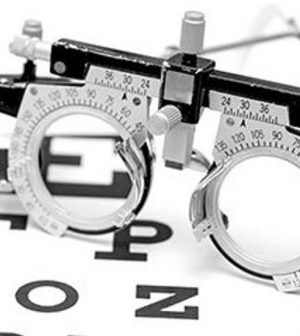- 10 Strategies to Overcome Insomnia
- Could Artificial Sweeteners Be Aging the Brain Faster?
- Techniques for Soothing Your Nervous System
- Does the Water in Your House Smell Funny? Here’s Why
- Can a Daily Dose of Apple Cider Vinegar Actually Aid Weight Loss?
- 6 Health Beverages That Can Actually Spike Your Blood Sugar
- Treatment Options for Social Anxiety Disorder
- Understanding the Connection Between Anxiety and Depression
- How Daily Prunes Can Influence Cholesterol and Inflammation
- When to Take B12 for Better Absorption and Energy
Vision Troubles Could Raise Midlife Depression Risk for Women

WEDNESDAY, Oct. 27 2021Midlife vision problems could increase women’s risk of depression, new research suggests.
Rates of eye problems and depression rise during midlife, but knowledge about how vision affects depression at that time has been limited. The new study identified a significant link between impaired vision and development of depression.
“Given that the combination of visual impairment and depression has a particularly devastating effect on physical and mental health, correcting vision problems early is important for future quality of life,” said Dr. Stephanie Faubion, medical director of the North American Menopause Society (NAMS).
The study was led by Carrie Karvonen-Gutierrez, assistant professor in the School of Public Health at the University of Michigan, Ann Arbor. Her team published their findings Oct. 27 in Menopause, the society’s journal.
In their analysis of data from the Study of Women’s Health Across the Nation, researchers found a significant link between impaired vision and depression. The link held for mild, moderate and severe vision problems in middle-aged women.
Midlife vision problems include common and correctable ones such as refractive errors and cataracts, as well as more serious, chronic eye diseases such as glaucoma, diabetic retinopathy, hypertensive retinopathy, and macular degeneration.
Researchers noted that midlife depression can interfere with healthy aging and lead to poor long-term health outcomes. Early identification and treatment of vision problems in middle-aged women is an important part of helping them maintain their mental and physical health, they said.
Middle-aged women have a higher rate of depression than all other age groups, and depression is more common in women than in men.
More information
The U.S. National Eye Institute has more on women and eye health.
SOURCE: North American Menopause Society, news release, Oct. 27, 2021
Source: HealthDay
Copyright © 2026 HealthDay. All rights reserved.










